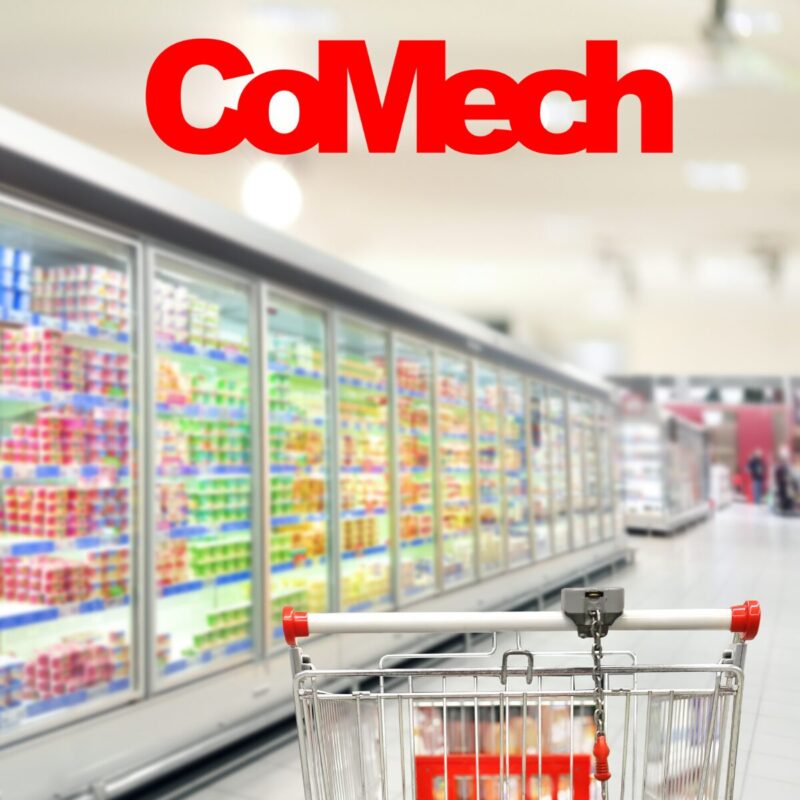In the world of food retail, maintaining the quality and safety of products is paramount. Calibration ensures safety, efficiency and compliance in this specific area. Supermarket freezers play a crucial role in preserving the freshness of frozen goods, but their effectiveness hinges on one key practice: proper calibration. Calibration involves adjusting the freezer’s equipment to ensure it operates within the correct temperature ranges, and it’s a task that can have significant implications for food safety, energy efficiency, and regulatory compliance.
Why Calibration Matters
Calibration of supermarket freezers is not just about keeping food cold; it’s about maintaining precise temperature control to prevent spoilage and ensure safety.
Let’s dive into three critical reasons why calibration is essential:
- Ensuring Temperature Accuracy
The primary purpose of supermarket freezers is to keep products at temperatures that prevent bacterial growth and maintain food quality. UK standards, such as those outlined by the Food Standards Agency (FSA), mandate that frozen food should be stored at or below -18°C (0°F). Freezers that are not properly calibrated can deviate from these set points by several degrees, which can compromise food safety. Regular calibration of temperature sensors, thermostats, and display thermometers ensures that freezers operate within the correct temperature ranges, keeping products safe for consumption. - Boosting Energy Efficiency
Energy efficiency is a major concern for supermarkets, given the high energy demands of refrigeration equipment. A mis-calibrated freezer can lead to excessive energy use, as it might run continuously or cycle inefficiently, straining components like compressors. By calibrating freezers, supermarkets can optimize their energy use, reduce operational costs, and lower their carbon footprint. According to the UK government’s Energy Technology List, energy-efficient refrigeration can significantly cut down on energy consumption and operational costs. Regular calibration plays a key role in achieving and maintaining this efficiency. - Extending Equipment Lifespan
Proper calibration not only helps with energy efficiency but also extends the lifespan of the freezer equipment. Faulty sensors or misaligned thermostats can cause the system to overwork, leading to premature wear and tear. By calibrating these components regularly, supermarkets can prevent costly breakdowns and extend the longevity of their freezers, ultimately saving on repair and replacement costs. The British Standards Institution (BSI) provides guidelines for the maintenance and calibration of refrigeration equipment, helping businesses keep their systems in top condition.
Compliance with UK Standards
Compliance with UK standards is a critical aspect of freezer calibration. According to the FSA, frozen food must be stored at temperatures that prevent the growth of harmful microorganisms, with clear guidelines set out for temperature control. Furthermore, the BSI’s standards for refrigeration equipment calibration and maintenance underscore the importance of precise temperature control in food safety.
For more detailed information on these standards, you can refer to the following links:
- Food Standards Agency: Temperature Control Requirements
- British Standards Institution: Refrigeration Equipment Maintenance and Calibration
Regular calibration of supermarket freezers is a small but vital investment for a range of reasons that the HSE highlights and it pays off in enhanced safety, efficiency, and customer satisfaction. By ensuring that temperature controls are accurate and reliable, supermarkets can uphold the highest standards of food safety, reduce energy costs, and extend the life of their equipment. Keeping up with UK standards and best practices for calibration not only protects consumers but also enhances the overall performance and sustainability of the business.


